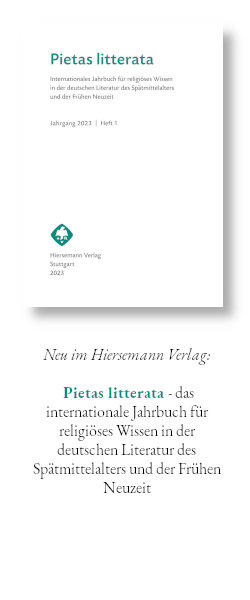Der Liber salutis des Johann von Soest (1448 – 1506)
Rhetorische Strategien zur Gewinnung fürstlicher Gunst
DOI:
https://doi.org/10.36191/mjb/2021-56-1-2Schlagworte:
Johann von Soest, Liber salutis / Libellus salutis, mirror of princes, Heidelberg, Early humanismAbstract
Thomas Haye: The Liber salutis written by John of Soest (1448 – 1506). Rhetorical strategies for winning the prince’s favour
The singer and composer John of Soest (1448 – 1506) was one of the most important musical virtuosos of the late 15th century. As can be seen from his autobiography, he came into conflict with his lord, the Elector Philip the Sincere (1476 – 1508), in the early 1490s. As a result, John had to give up his well-paid position and leave Heidelberg in late 1494. After changing positions several times, he died as a physician at Frankfurt (Main). The crisis of 1494 is highlighted by the hitherto unpublished Liber salutis (alternative title: Libellus salutis), which John dedicated to the Elector at this time. The text is a mirror of princes (›Fürstenspiegel‹) tailored to the special biographical situation, and was obviously written by John in an attempt to win back the Elector’s favour. This essay examines the rhetorical strategy of the text and places it in the context of the early humanism in Heidelberg. The appendix contains a critical edition of the prologue, the epilogue, and the dedication verses.
Keywords: Johann von Soest, Liber salutis / Libellus salutis, mirror of princes, Heidelberg, Early humanism


